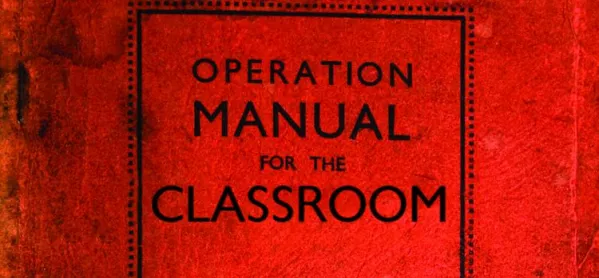- Home
- GCSE English: Why we must develop critical literacy
GCSE English: Why we must develop critical literacy

GCSE results day is emotional for any teacher, but if you deliver English GCSE resits in FE the day brings its own particular set of challenges. We work hard to support and motivate students undertaking a subject that they often feel they have “failed” - but we do this knowing that, statistically, the odds are stacked against them.
Last year 31.9 per cent of students aged 17 or over achieved a grade 4 in their English GCSE exams, leaving many disappointed once again. While the grades are important, it might help us to reflect on the fact that what we teach in those GCSE lessons can have a profound impact on the development of young people even if they don’t (yet) achieve the outcome they want.
It would be an understatement to say that the world has changed significantly in the past six months. In May, George Floyd, an African-American man, was killed when being arrested by white police. His death led to months of international protests in support of the Black Lives Matter movement and pushed many organisations and individuals to examine their own complicity in racism and bias. Many of us in FE are casting a critical eye on the curriculum and on our own teaching and thinking about how we can do things better.
Results day: How schools can appeal GCSE and A-level results 2020
Background: GCSE results - English and maths resits pass rates drop
GCSE resits: ‘Look how far you have come’
More: Racism ‘undermines’ FE, government is told
There have been some great discussions on social media highlighting the many fiction and non-fiction texts by black writers that could be used in preparation for the English language papers. But this is also an opportunity to think about types of literacy we think young people in FE should be developing.
The soul-searching that has occurred in the wake of the Black Lives Matter protests confirms that, as a society, we need more than the functional literacy that then enables us simply to decode words on a page.
Tackling racism: the importance of critical literacy
We also need the critical literacy that enables us to think analytically about the ways different groups of people are represented, by themselves and by others, and about the words, images, symbols, and perspectives with which we are surrounded. It is only by doing this that we start to understand the deeper cultural forces that all too often erupt into overt acts of violence.
Young people’s ability to think about how language is used and about the role it has in shaping the society around them is an issue that sits at the heart of English delivery in FE. The condition of funding, which stipulates that students with a grade 3/D in GCSE English and maths must continue to study these subjects until they achieve a grade 4, continues to generate controversy.
At the heart of this debate has been a discussion about the kinds of literacy school leavers really need. There have been repeated calls to scrap GCSE English language on the basis that it is “too literary” and does not focus on the skills that employers are looking for. The skills that employers want and young people really need, it is argued, are those pertaining to functional literacy: how to decode a text and compose a grammatically accurate email. While there is no denying that these skills are essential, what is lacking from these arguments is an appreciation of what is lost when critical literacy, or the ability to analyse and truly understand the impact of language and texts, is neglected.
The English language GCSE (and to some extent the reformed level 2 Functional Skills) provides students with the opportunity to develop their functional literacy but also, crucially, their critical literacy. It takes students on a journey from basic comprehension to considering the perspectives and viewpoints that have shaped the ways writers from different times and places have used words and images to communicate.
They are taught to become attuned to the ways subtle biases are communicated through language choices and to appreciate the ways in which those choices might have a direct impact on those encountering them. They are then asked to demonstrate their own ability to communicate, accurately, and powerfully their own stories and perspectives. It is not difficult to see how important these skills are in a world still plagued by too many subtle, and not so subtle, injustices.
As English teachers in FE, we have a brilliant opportunity to work with young people to develop their awareness of the power that language has to shape the world they live in, for good or for ill. On results day, while we might share in the disappointment of those students who did not get the grade they hoped for, we can also look to the coming year and to how we might continue to develop our students’ critical abilities in ways that will ensure that those months they spend with us will have a lasting value that goes far beyond the qualification.
Alice Eardley is an English teacher and faculty manager at Activate Learning
Keep reading for just £1 per month
You've reached your limit of free articles this month. Subscribe for £1 per month for three months and get:
- Unlimited access to all Tes magazine content
- Exclusive subscriber-only stories
- Award-winning email newsletters

